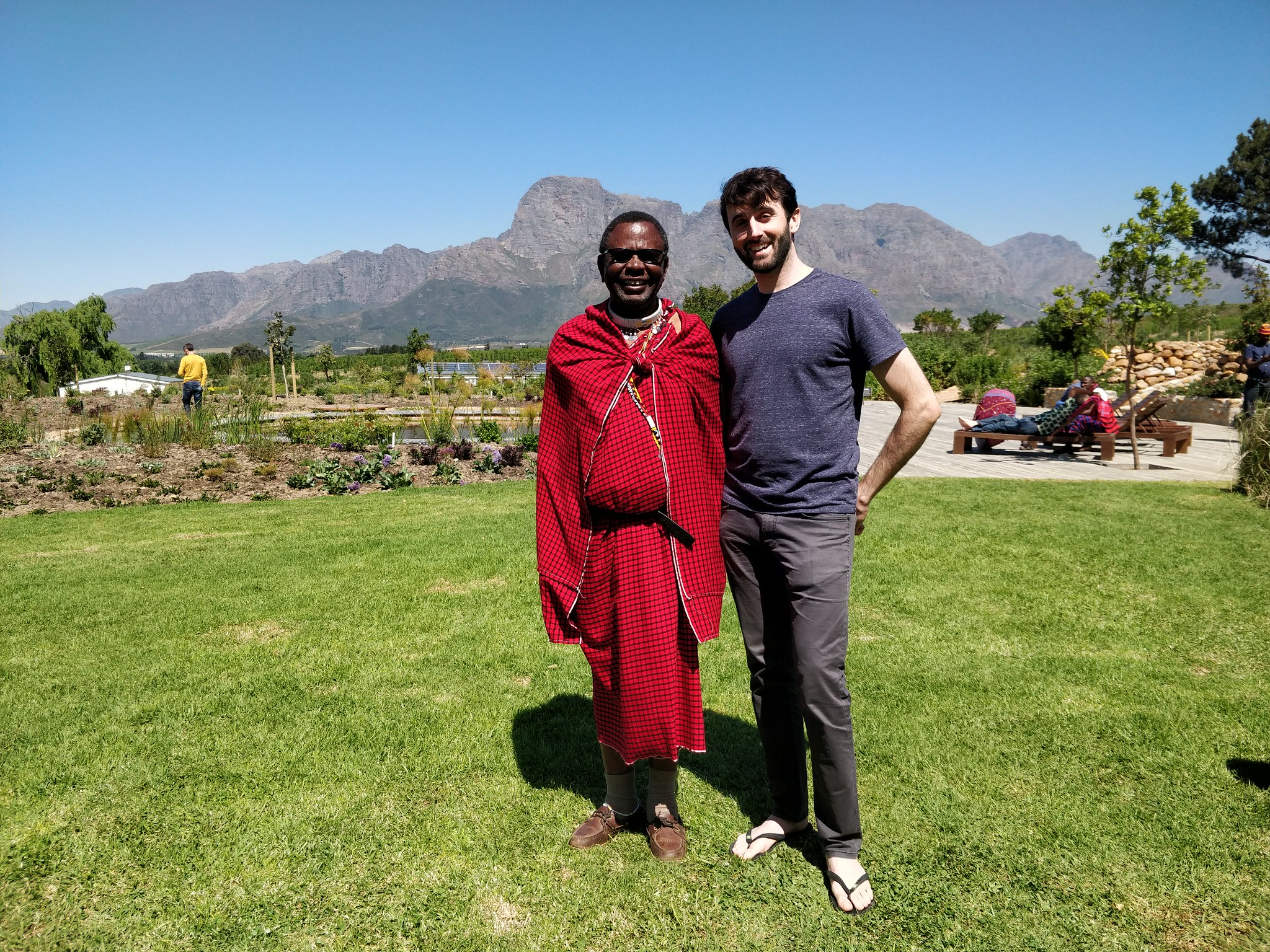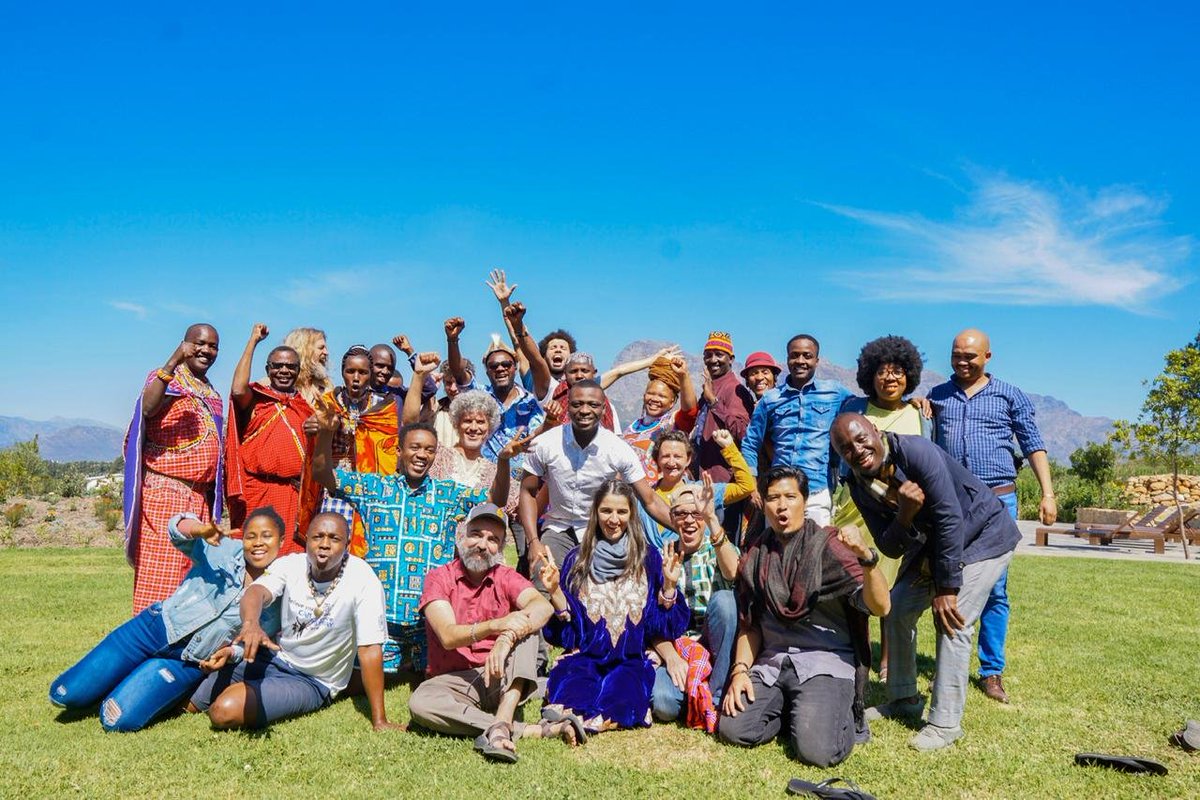The Maasai people of Kenya and Tanzania have a long tradition of living in harmony with nature. However, for the past century they have also seen their land and way of life targetted by encroaching intiatives related to nation-building, development, tourism, mining, etc. As a new decade begins the Maasai are once again being pushed off their lands and told their way of life must end in the name of “progress” or “development”. Today on the podcast, we hear from three members of that community who explain their way of life and the reality they face on the ground today. It’s the story of the Maasai and their struggle to survive.
Tag Archives: development
Voices 4 Change: Indigenous Activists and Friends in Africa
This month I had the great honor of being present at the Video 4 Change gathering in South Africa. This meeting brought together indigenous activists from different parts of the continent, as well as allies and friends from the rest of the world. The topic: the struggle for indigenous rights in a globalized world where in the name of profit and development, people who have long lived in harmony with their environment are being forced to discard their identity and physically pulled from their ancestral land. How is this happening in an era of sustainable development goals and human rights? What can be done to help communities defend themselves and be heard on a national and international scale?
Zambians in China
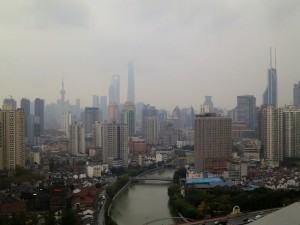 The Dubai to Shanghai Emirates flight is jam packed with people eager to get to the people’s republic. I’m in the aisle seat with two jovial middle aged men to my right. They’re joking about the food or the flight attendant who always ignores their requests for food or drink, they speak with different accents yet they seem to know each other fairly well. The jokes are funny and kind hearted- it is going to be a nice flight.
The Dubai to Shanghai Emirates flight is jam packed with people eager to get to the people’s republic. I’m in the aisle seat with two jovial middle aged men to my right. They’re joking about the food or the flight attendant who always ignores their requests for food or drink, they speak with different accents yet they seem to know each other fairly well. The jokes are funny and kind hearted- it is going to be a nice flight.
Along the way more jokes mixed with pearls of wisdom about travel, airplanes, doing business in China as well as life in Zambia. These two gentlemen live in Zambia. One is a native son of Zambia with a fantastic sense of humor and a kindness you rarely see on a long haul flight. The other, to my surprise, is Portuguese, working the last decade or so for a Portuguese construction company based in Zambia. Their destination, a construction vehicle exposition in Shanghai. Because as you should already know and these two gentlemen remind me, down in Africa, it is the Chinese that go for every contract and manufacture some of the most budget friendly vehicles for those big infrastructure projects.
“You never know what you’re going to get; sometimes the projects are done well and you can see it when roads or houses last over the years. Other times the projects are of poor quality; roads and structures are falling apart within only a few years… you have to be careful because choosing the lowest bidder is not always the best thing for the country in the long term.”
Again, themes we hear about in the press and from first hand observers over the past decade. The conversation carries on and each man shares experiences dealing with Chinese development corporations and machinery companies; the good sides, the bad sides, the in between details. They’re both pleased to be coming to Shanghai, a place that is tens of thousands of miles away from home but that plays a very significant role it what happens there in the coming years.
As we made our approach to Pudong Airport, the interesting conversation carried on, moving from Portuguese politics to Zambian politics and the intricacies of each. Pulling into the gate, cards are exchanged, handshakes, best wishes, and off we go to our respective missions in China. I make a mental note, get over to Zambia, I’d like to see that lovely country.
Connecting Hacker Camp with the World
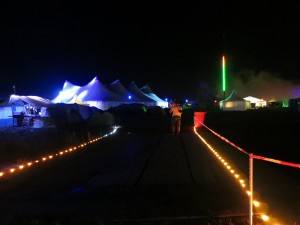 This podcast began as a small conversation on the last day of OHM 2013 among individuals doing projects in South America, the Middle East, Asia and West Africa. As we recorded, the number of participants increased as friends, acquaintances, and curious strangers joined our circle to listen or speak about their project and their impressions of this camp in relation to what is happening in the rest of the world.
This podcast began as a small conversation on the last day of OHM 2013 among individuals doing projects in South America, the Middle East, Asia and West Africa. As we recorded, the number of participants increased as friends, acquaintances, and curious strangers joined our circle to listen or speak about their project and their impressions of this camp in relation to what is happening in the rest of the world.
My goal with this recording, to make the connections from this temporary microworld that we built, to the rest of the world and the challenges people face everyday. If you enjoy hearing from dedicated, kind hearted, and fum people, listen to this podcast.
Projects and People Included in this recording:
- Everyone talks about OHM 2013
- Anna Waldman-Brown on Ghana
- Vinay Gupta and Hexayurt
- Grace works at Saathipads
- Smári McCarthy wears hats
- MailPile Launched
- Bilal is working on Gemsi, Middle East and Beyond
- Xavi is busy with RhizoMatica Oaxaca
- Raja and Sara are proud of Lamba Labs Beirut
- Everyone else who was there, feel free to comment!
Progress Rumbles Through Your Yard
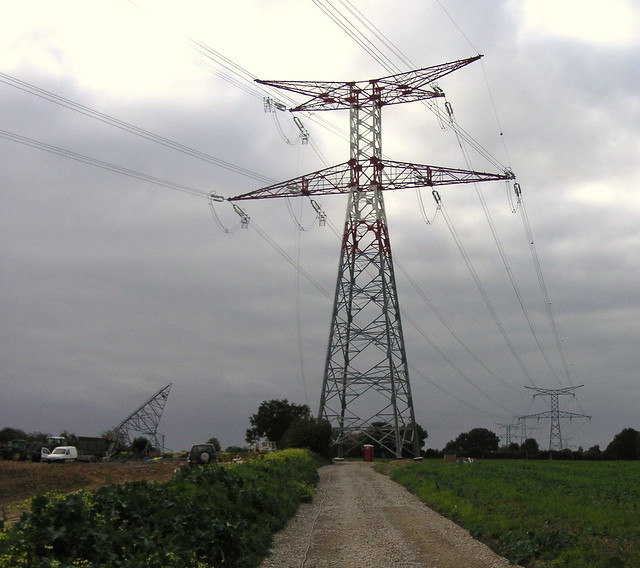
The lower Normandy that I’ve come to know is an amazing world of deep green fields, breathtaking skies, and a silence I have never heard before. The few houses you pass are modest and functional. They can be found between the long stretches of corn and the grazing land where content cows and sheep seem to have all the time in the world to eat and relax. One of the busiest metropoles in the world is 3 to 4 hours away, but out here it may as well be on another continent. Still, people here are busy, building things, cleaning things, working the land in one form or another. Some grew up here and continue a family tradition of agricultural work. Others come from different parts of the country, even foreign countries, to live the healthy, calm, and satisfyingly simple life they always wished for.
Looking out over the mystifying landscape one night, a friend shows me with great disappointment, massive new structures on the otherwise beautiful horizon. With their feet planted firmly in concrete, towering high above the corn and fruit orchards, are massive high tension power lines. “They just put them in, stretching from the power plant that isn’t online yet several hundred kilometers away,” my friend describes with an alarmed tone like someone talking about an oil slick or a forest fire swallowing up his neighbors. “The power company is planning to use these lines to sell electricity to Spain, all the nearby farmers protested, but the company built it anyway.” He went on to describe the extensive campaign to fight the power company and how they are able to seize land for installing power cables and towers regardless of what the nearby community thinks.
I stepped back from the situation and thought about how often scenario’s like this take place. The massive dam projects in India that displaced thousands of people with little to no consultation. The coal power plant right next door to the city of Ulan Bataar in Mongolia, bringing electricity and horrific air pollution to hundreds of thousands nearby. Throughout history and including today, projects are pursued for different reasons, some to improve lives, some just for the sake of profit or prestige. And regardless of their purpose, sometimes those same projects wind up harming the very people they set out to benefit.
These same questions will still be asked about major decisions and risky initiatives long after all of us have left the planet, when is worth it and when is it not worth it? Innovation and development that improves quality of life for more people on this planet – who could argue with that? But innovation and development for the sake of profit for a tiny few while harming a larger part of the population – why should that be acceptable?
A different issue but yet somehow related, I’m reminded of Mario Savio’s speech in 1964: “There’s a time when the operation of the machine becomes so odious, makes you so sick at heart, that you can’t take part! You can’t even passively take part! And you’ve got to put your bodies upon the gears and upon the wheels…upon the levers, upon all the apparatus, and you’ve got to make it stop! And you’ve got to indicate to the people who run it, to the people who own it, that unless you’re free, the machine will be prevented from working at all!”
Hospitals and Senior Homes
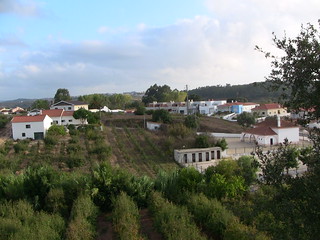 I’ve spent the better part of this summer with senior citizens, especially those living in small town Portugal. They are the generation just barely hanging on, the same people who 20 years ago I would spend much of my summer with. They were the farmers, the housewives, the seamstresses, and the factory workers. They raised children, they emigrated to countries where there was work and hope, and then they came home to live among their farms and friends for those golden years as they awaited visits from grandchildren and for life to carry on.
I’ve spent the better part of this summer with senior citizens, especially those living in small town Portugal. They are the generation just barely hanging on, the same people who 20 years ago I would spend much of my summer with. They were the farmers, the housewives, the seamstresses, and the factory workers. They raised children, they emigrated to countries where there was work and hope, and then they came home to live among their farms and friends for those golden years as they awaited visits from grandchildren and for life to carry on.
As decades flew by, these towns changed dramatically and perhaps the people did too. Young people kept leaving, and old people kept getting older. The focus shifted to nearby cities and suddenly there were hardly any children in town. The local school where my mother and so many other children studied, stands empty and closed as the regional government has decided there aren’t enough students. The ruins of houses I used to visit when I was a kid lay everywhere, with their collapsed roofs, broken windows and walls that have crumbled. In the center of the village there are now only two buses per day to get you to the nearest towns, another sign of a culture that has embraced the car as the ONLY means of transportation, and a community that can hardly walk to the bus stop.
Some of the still mobile seniors still tend to their fields, watering their crops which is mostly just for home consumption. Several middle aged farmers do the lion’s share of the work, growing pears and grapes, the inconsistent cash crops of the community. Their children go to school and vocational training, their interests lead them away from the farm, towards the much talked about better life that is assumed to exist beyond this dying town. As days turn into weeks, another beloved member of the community passes away. Their land passes on to a child who lives far away. Their houses lay empty, some strong enough to resist the decay, others not so lucky. Outside of town there are a few tourism projects that attract visitors with money; wine tourism, people seeking peace and quiet, and those who find the mountains and valleys of agricultural Portugal to be charming. Inside of town, the mayor wonders out loud about what will happen to his shrinking population when the generation that built the town is completely gone, and then next generations have long moved away.
This story of one particular village that I have known all my life, repeats itself over and over in Portugal. Cities get bigger. Villages die out. The elderly disappear while the young follow the promise of a what some say is a better life. Ripe plums and peaches fall from abandoned groves to the point that it smells like wine in the afternoon heat. Down the main road a few minutes there’s a new giant super market chain store that has opened up, they’ve got a sale on peaches and plums.
